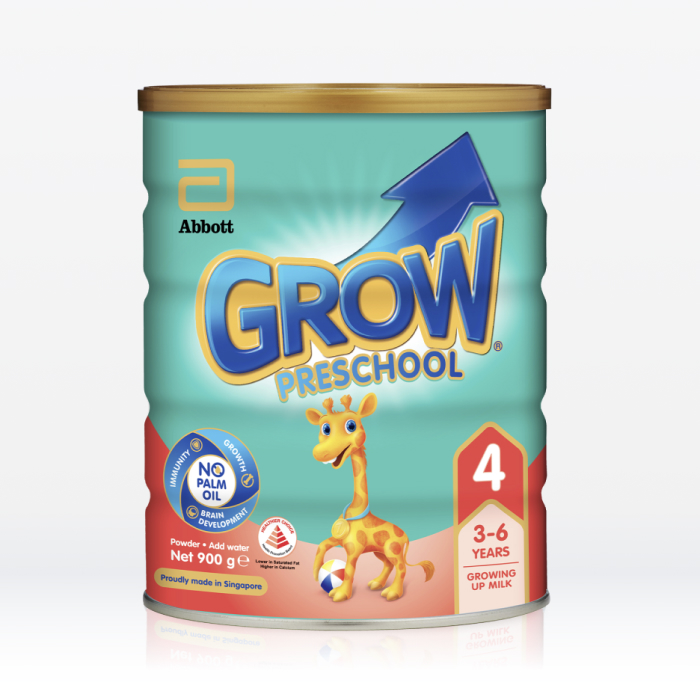Grow® Preschool Stage 4
- Main Image
-

- Subtitle
- 3 – 6 Years Old
- Title
- GROW® Preschool Stage 4
- Detail Page Path
Communication in children is not all about sounds, words and gestures they use. It is a very complex process, which involves skills such as listening, speaking, reading, writing and body language, as well as an understanding of our cultural and social conventions.
Good communication skills can make it easier for children to learn things, taking part in peer group activities can help gain acceptance from peers. Here are some strategies to help your little one learn how to read and speak well.
Children learn from their environment and day-to-day experiences with other people. So you need to be aware of the words you use when you’re communicating with your child.
Use correct, simple language when conversing with your child. Short and concise sentences will help kids hear and understand more of what you say. Your child is also more likely to remember new words and sentence structures you have said out loud.
Be as careful about how you converse with other adults in front of your little ones, so that impressionable kids do not pick up bad language!
Making mistakes is an important part of learning. It is important to allow your child to make mistakes, as most children can learn to correct their language mistakes after hearing adults speak the proper version.
If you focus too much on correcting your children, they may become nervous and hesitant to try to speak up.
The best thing to do is to repeat the correct version of what your child has said incorrectly, in the most natural way. For example, if your child says “I hurted myself”, resist the urge to correct them and reply “Oh dear, did you hurt yourself.” That way your child can pick up the correct version without losing confidence.
Communication in children is not all about speaking. The ability to listen is important for effective communication. By listening attentively to others, your child will collect and understand what has been said and respond accordingly.
Model good listening habits by paying the same amount of attention to your child that you would want when others are listening to you.
Establish eye contact with your child when talking to your little one. Always prompt your child to ask questions and comment on what you say.
By reading across a broad range of topics and genres, your kids will be able to add new words to their daily vocabulary. The general knowledge gained from reading will also enhance your child’s self-confidence.
By reading frequently, your child will better understand and appreciate the grammar rules of the language they’re reading in.

A Good milk formula contains no palm oil! What savvy parents need to know about fat blends in milk powders.

Worried that your active child’s attention span seems too short to absorb new information? Get to expand his or her knowledge!

Provide your kids with the nutrients they need to study well and stay healthy, learn about key brain food hacks to rock it at school.

How to make learning for kids fun to nurture your child's curiosity and help cultivate the interest in learning. Come out, let's get learning!

Choose a formula with no palm olein for with better absorption of key nutrients such as DHA, AA and calcium.
You are about to exit for another Abbott country or region specific website.
Please be aware that the website you have requested is intended for the residents of a particular country or region, as noted on that site. As a result, the site may contain information on pharmaceuticals, medical devices and other products or uses of those products that are not approved in other countries or regions.
The website you have requested also may not be optimized for your specific screen size.
Do you wish to continue and exit this website?